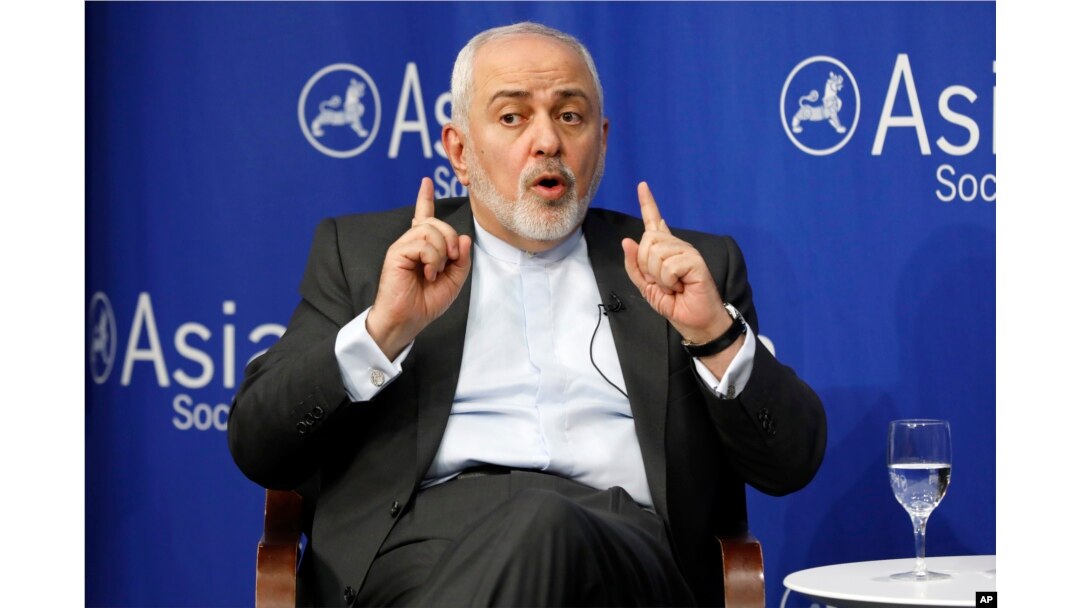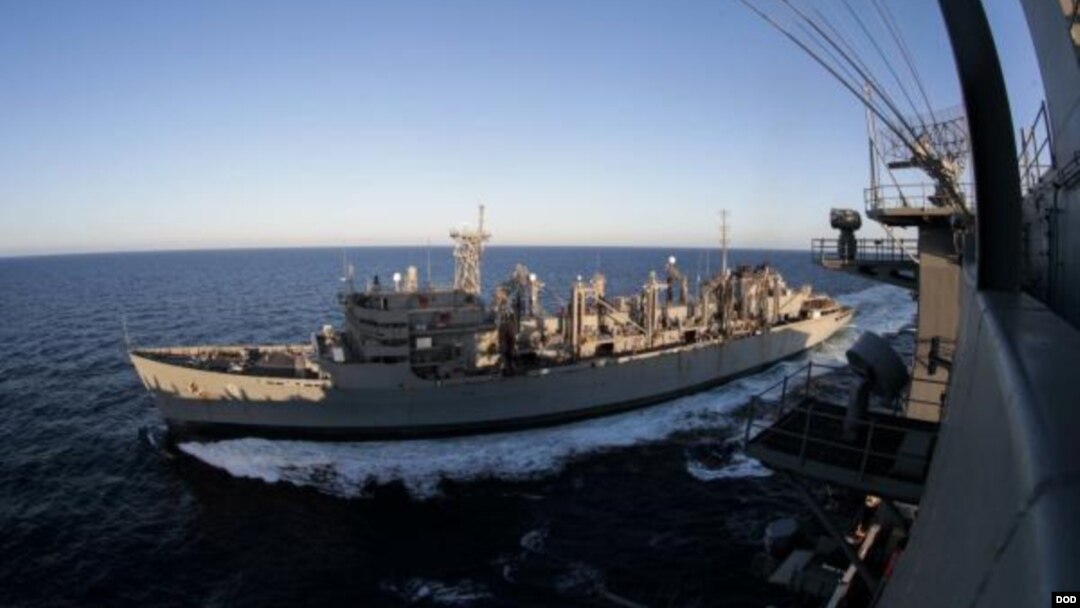White House bureau chief Steve Herman contributed to this report.
The United States is sending an aircraft carrier strike group and bomber task force to the Middle East in response to what National Security Adviser John Bolton said are "a number of troubling and escalatory indications and warnings" linked to Iran.
In a statement late Sunday, Bolton said the moves are being made to "send a clear and unmistakable message to the Iranian regime that any attack on United States interests or on those of our allies will be met with unrelenting force.
He added that the United states "is not seeking war with the Iranian regime, but we are fully prepared to respond to any attack, whether by proxy, the Islamic Revolutionary Guard Corps, or regular Iranian forces."
The Trump administration did not give details about any particular threats.
In addition to the carrier USS Abraham Lincoln, the strike group included fighter jets, helicopters, destroyers and more than 6,000 sailors when it left its U.S. port in early April.
Secretary of State Mike Pompeo, speaking to reporters traveling with him to Europe, declined to comment about what prompted the U.S. decision, but said it had been under consideration for a while and that the administration has "good reason" to want to clearly communicate to Iran how it would respond to Iranian actions.
Iranian officials did not immediately give public reaction to Bolton's announcement.
Iran denies confrontation
One week ago, Iranian Foreign Minister Mohammad Javad Zarif accused Bolton and others, including Israeli Prime Minister Benjamin Netanyahu, of "designing confrontation."
"I don't think military confrontation will happen," Zarif told CBS News. "I think people have more prudence that allowing a military confrontation to happen. But, I think the U.S. administration is putting things in place for accidents to happen. And there has to be extreme vigilance, so that people who are planning this type of accident would not have their way."

Iran's Foreign Minister Mohammad Javad Zarif speaks at the Asia Society in New York, Wednesday, April 24, 2019.
Ned Price, a fellow at the New America Foundation and a former spokesman for the Obama-era National Security Council, said recent actions to sanction the IRGC and end sanctions waivers for some of the country's biggest oil buyers make it seem like the Trump administration "seems intent on driving the Iranians into a corner."
"The concern with Bolton's threat -- coming in the midst of a series of escalations from the Trump administration -- underscores the concern that the administration is trying to goad the Iranians into an unwise and ill-considered reaction," Price told VOA.
Maximum pressure
The Trump administration has been working to apply what it calls a "maximum pressure campaign" against Iran in order to try to get the country to change its behaviors, including Iran's sponsorship of terror groups and what the White House alleges is a ballistic missile program that threatens the United States.
In response to last month's U.S. designation of the IRGC as a terrorist group, Iran responded by declaring the United States a state sponsor of terrorism and its forces in the Middle East as terror groups.
Daniel DePetris, a fellow at Defense Priorities, a think tank that advocates American maintain a strong, dynamic military but wants it to try to avoid being deployed in overseas wars, said that while Iran is meddlesome, the threats it poses can best be addressed with deterrence and diplomacy.
"Maximum pressure will fail to change the regime's behavior, but it will ratchet up tensions between the U.S. and Iran, possibly inciting a crisis or war, something Trump promised to avoid during his campaign," DePetris said. "This is more evidence of a troublesome disconnect between the president and the people who ostensibly work under him. The Iranians are meddlesome actors, but they're far from a threat to the U.S., the world's only superpower."
James Jay Carafano, vice president of the Heritage Foundation’s institute for national security and foreign policy, praised the U.S. move.
"The US is a global power with global interests and responsibilities," he said. "It’s a powerful statement to demonstrate the US is not distracted by a host of challenges-in Venezuela, by provocations from North Korea, and yet, the US has the resolve and capacity to show it can stand strong in the Middle East as well."
India
The main concern for India, whose economy is largely fueled by imported crude, much of it from Middle East countries such as Iraq and Saudi Arabia, would be the potential impact on the stability of the region and security of sea lanes through which its energy supplies flow.
"India would be slightly concerned because stability in the Middle East is very important. And if you have a situation where Iran and America are actually entering into a confrontationist mode then that will not only impact the two countries but the larger region. The question of what happens to the larger region, what happens to the sea-lanes of communication, I think that is going to be a challenge if this results in something bigger," according to security analyst Harsh Pant at the Observer Research Foundation in New Delhi. "India will wait and watch and see how far it goes."
India, which has friendly relations with Iran and a growing strategic partnership with the United States, is also under pressure to slash oil imports from Iran.
Except for saying that there will be additional supplies from other oil producing countries, New Delhi has not stated clearly whether it plans to bring down its oil imports from Iran to zero as the United States wants.


